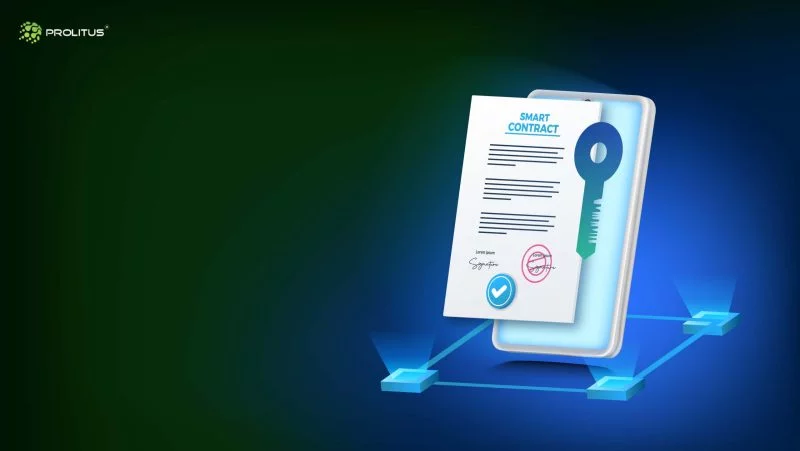To put it simply, a smart contract is a computer protocol intended to facilitate, verify, or enforce the negotiation or performance of a computer contract written in code. They are self-executing contracts with the terms of the agreement between buyer and seller directly written into lines of code. They do not need a third party to enforce them. The code and the agreements contained therein are stored on a blockchain.
Since the creation of Bitcoin, there has been a race to find the next big thing in the cryptocurrency world. Ethereum may have won that race. Released in 2015, Ethereum is a decentralized platform that runs smart contracts: applications that run exactly as programmed without any possibility of fraud or third-party interference. These contracts are verified and enforced by the network of computers running Ethereum software.
The potential for Ethereum is huge. Smart contracts could revolutionize everything, from voting to insurance to financial trading. But as with any new technology, there are risks. In particular, smart contracts are susceptible to security vulnerabilities, and they can be exploited by malicious actors. In one well-known example, a hacker exploited a vulnerability in the DAO, a decentralized autonomous organization based on Ethereum, to steal millions of dollars worth of Ether.
Fortunately, many of these vulnerabilities can be avoided by smart contract audits. Smart contracts find these weaknesses and fix them by using strong and reliable transaction protocols. This makes sure that smart contracts can be carried out safely.
What is a smart contract audit?
A smart contract audit entails a meticulous and in-depth analysis of a piece of code that permits interaction with a cryptocurrency or blockchain. Although they protect hundreds of billions of dollars worth of value, smart contracts are largely incomprehensible to those who are not familiar with any of the programming languages in which they are written. And these are entirely new languages: Less than ten years ago, Solidity, the first programming language for fully featured smart contracts, was released. And since then, there has been a significant and expanding need for third-party security assurances provided by smart contract audits because the majority of people who interact with smart contracts are unable to read them.
The purpose of the smart contract audit is to find any potential bugs and security holes in the code and provide recommendations for improvements and solutions. Most of the time, these audits are done with the Solidity programming language and can be found on GitHub.
In the Decentralized Finance (DeFi) industry, smart contract security audits are very common. Few people are interested in delving into the lines of code, despite the fact that most people have begun to recognize the value of audits for cybersecurity. However, we advise looking into a project’s smart contract code review before making a decision if you’re considering investing in it.
How do smart contract audits work?
The objective of the smart contract audit is to correct any errors in the code as well as any design flaws or security vulnerabilities that may exist in the code. In most cases, professional smart contract auditors will provide a comprehensive audit plan in order to assist you in gaining a better understanding of the process. Each smart contract auditing company will conduct its business in a different manner. In addition, the level of coding complexity and the services that are provided by each project will cause them to vary from one another. On the other hand, when smart contracts are audited, the steps below will almost always be done in the same order.
Study the Project:
First and foremost, before auditing any smart contracts, auditors need to have a solid understanding of the architecture of the protocol. After gaining an understanding of the anticipated outcomes for each interaction and comparing them to the whitepaper, developers, and auditors usually engage in further in-depth conversations regarding setting up the standards for design, use cases, and architecture of the protocols.
Code Freeze:
The term “code freeze” refers to the point at which the code has been completely finalized. It lets auditors find the exact source file for the code, stops developers from changing the code while an audit is going on, and makes sure that the version of the code being used is the same as the version that is made available to the public.
Review of the Code:
Once the code has been frozen, auditors will go back through it and look at it more closely in an effort to gain a better understanding of the standard list of vulnerabilities. Auditors will conduct a series of standard attacks against the project in order to determine which, if any, of the attacks have a chance of succeeding. After this step, the severity of the vulnerabilities is evaluated, and the project can ascertain whether there are any immediate points of concern that require attention.
Testing:
The audit team conducts tests in order to identify flaws and problems with the code. Unit testing focuses on individual functions, but integration testing examines a greater number of lines of code and covers a wider scope. In most cases, a project will undergo testing in both an automated and manual capacity. If the audit team sees a large number of tests that didn’t pass, they might suggest making big changes to the code base.
Common Smart Contract vulnerabilities
Integer Arithmetic Error:
Integer arithmetic is a key component of smart contracts. However, a recent study found that integer arithmetic in smart contracts is vulnerable to errors. In a sample of five contracts, the researchers found errors in all of them. The mistakes were made because of wrong assumptions about how integers work in smart contracts.
The most common type of error was an arithmetic error. This occurred when two numbers were summed or subtracted and the result was not what was expected. For example, if a contract tried to subtract 1 from 1,000,000, the result would be 999,999. This type of error can be very costly for businesses that rely on smart contracts.
Another type of error that can occur in smart contracts is called a signed integer overflow. This happens when a number is too large to fit into the designated data type.
Block Gas Limit Vulnerability:
The Block Gas Limit is a smart contract’s vulnerability that occurs when it exceeds its block gas limit. This can happen if the contract’s code is not written efficiently, or if it tries to do too much at once. When this happens, the contract can no longer be executed by the network of computers that run the blockchain, and it is effectively frozen.
Frontrunning:
Frontrunning is when an attacker guesses what another user on the network will do next and uses that information to make trades before the other user and make money.
This type of attack can be carried out by monitoring the blockchain for transactions that will occur in the near future, then taking action to execute a trade before the other user does. By doing this, the attacker can ensure that they get the best price for their own trade and earn a profit at the expense of the other user.
Lack of parameter:
Many smart contracts are vulnerable to the missing parameter or precondition checks. This can leave the contract open to exploitation by attackers. For example, a function might be called with too few arguments, or the wrong type of arguments. This could allow an attacker to execute unintended actions, or gain access to sensitive information.
Precondition checks are used to ensure that a function is called with the correct set of parameters. If these checks are not performed, it leaves the contract open to attack. Attackers can exploit vulnerabilities in smart contracts by supplying malicious data that causes the contract to malfunction.
Contract developers should ensure that all precondition checks are included in their code. This will help protect against attacks and ensure the safety of your contracts.
Logic Bug:
Some of the following difficulties are peculiar to smart contracts, while others are universal. The most common issue we find involves smart contract logic. These problems may be caused by a typo, misunderstanding, or programming fault. They affect smart contract security and functionality.
All of them can only be detected if the auditor understands the code base, the project’s intended functionality, and the contract’s specification. These issues make smart contract audits time-consuming, and expensive, and require professional auditors.
Final Thoughts
As blockchain technology and its use cases continue to evolve, so too does the need for robust smart contract audits. Smart contracts are self-executing contracts that are stored on a blockchain, and they have the potential to revolutionize the way businesses operate. However, because they are executed automatically and without human intervention, it is essential that they are properly audited before being put into use.
An audit of a smart contract can help to ensure that it is functioning as intended and that it is secure. It can also help to identify any potential vulnerabilities that may exist in the code. By finding these weaknesses and fixing them before a smart contract is used, businesses can avoid mistakes and losses that cost a lot of money in the long run.
Smart contract audits are therefore essential to the success of any business that wants to use DApps and blockchain technology.
How Prolitus can help you with Smart Contract Auditing?
Smart contracts are becoming more and more popular with businesses as a way to streamline transactions and agreements. However, before you can use a smart contract, you need to be sure that it’s been audited and is safe to use. That’s where Prolitus comes in. We offer comprehensive smart contract auditing services that will make sure your contracts are safe and error-free. Our team of experts has years of experience in auditing smart contracts, so you can rest assured that your contracts are in good hands.
Contact us today to learn more about our smart contract auditing services, or visit our website to see examples of our work. We can’t wait to help you secure the future of your business with smart contracts that are safe and reliable!





